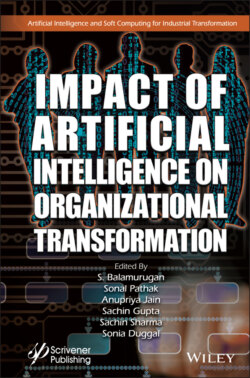Читать книгу Impact of Artificial Intelligence on Organizational Transformation - Группа авторов - Страница 72
3.8 Key Roles of AI in HRM
ОглавлениеOrganizations now are facing complex workforce challenges at higher rates. Expectations of the employer combined with the visualization of the workforce, which is equipped with the novel skill set, technology driven, and uniqueness of one to perfectly fit in the job, is increasing. The HR plays a crucial role in addressing these challenges. The upcoming technologies or the updation in the earlier one are becoming the savior of the HR to take the challenges of fitting in the employers expectations. With the advancement of the cloud computing, data decision matrix, and Internet of the Things, the life of a HR became so easy and another savior in the pipe line is the cognitive computing, emerging to help the business outcomes by expanding the expertise of the human and improving its decision-making. The digital age is bringing the opportunity, challenges, and trends to impact the HR functions of the organizations across the globe (see Figure 3.7).
Quickly changing requirements for novel ranges of abilities signal a requirement for adapting a recruitment-selection program that scour new talent pools. The present employee must have the option to explore the advanced world, which incorporates getting in to and drawing lots of knowledge from volumes of new information. As the work environment is becoming more competitive, the need of adapting the virtual scenario is growing worldwide. Also, eventually, there has been a significant move in the desires for the workforce; employees request work assignment that are close to home, connecting with and legal. Expanding on existing HR interests in innovation and procedure, including center HR platforms, cognitive arrangements give a chance to improve the general worker experience, reduce expenses, and increment the precision and nature of HR administrations. Cognitive solutions constantly collect information, understand natural language and use reasons to assess multiple data of information very quickly. By consolidating these, three significant characteristic—comprehension, assessment, and extracting meaning, cognitive computing enables the quick decision-making based on gathered insight and support the quick and error-free decision-making. The one of a kind capacities of cognitive computing frameworks make the way for a totally different way to deal with HR, one that addresses the difficulties of the present workforce, profiting both the association and its representatives. As CHROs center around changing the worker experience, subjective arrangements can expand on existing HR innovation ventures to improve the representative experience, help diminish operational expenses, and empower the revelation of new workforce bits of knowledge.
Figure 3.7 Use of AI in HR.
Note: It is showing various uses of AI in different function of HR and it helps to make a HR system more efficient. Source: CognitionX.
